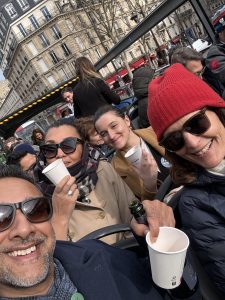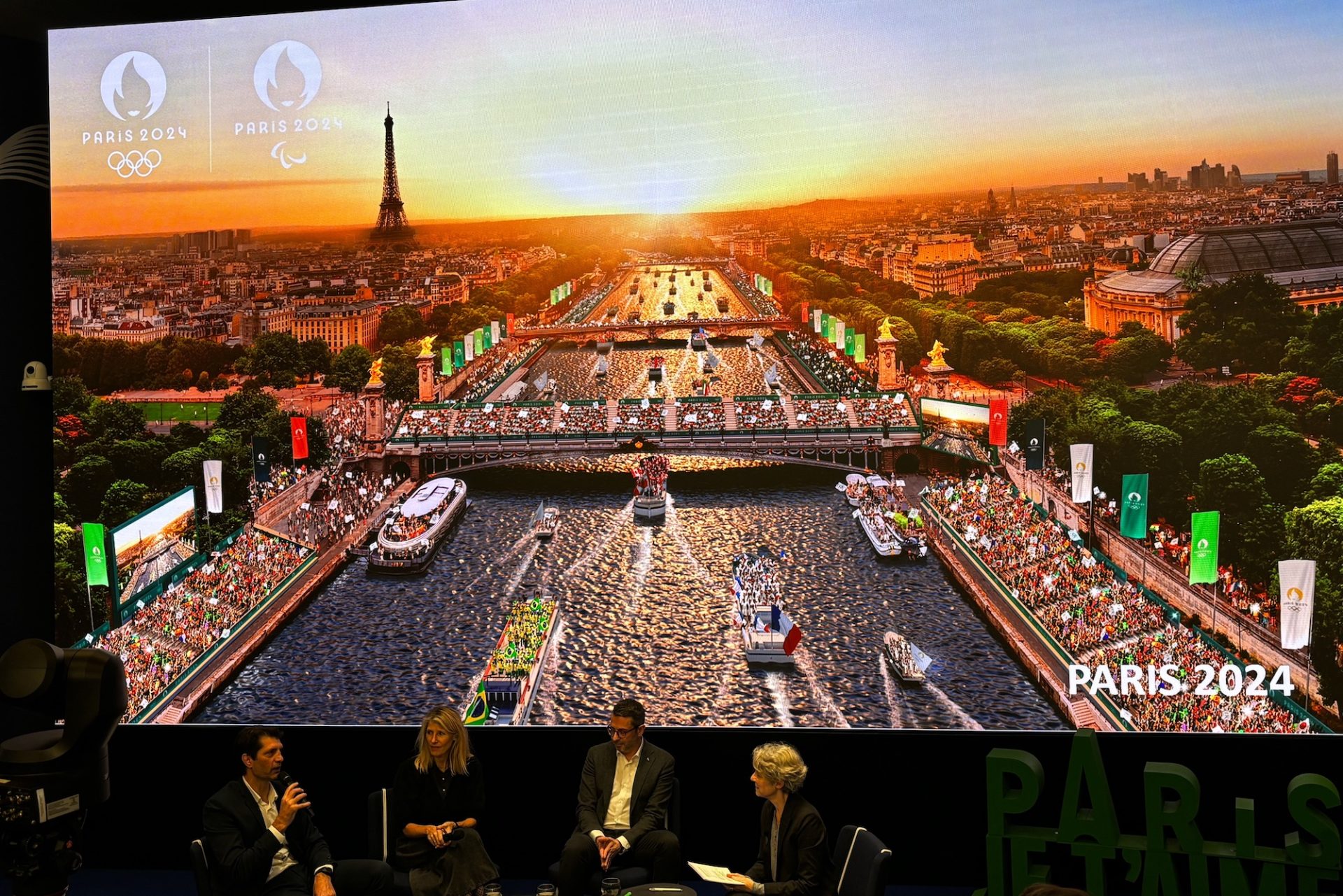 Chetan Shah, micebook founder & CEO, gives the lowdown on his recent trip to the French capital to explore how Paris is preparing to host 2024 Olympic and Paralympic Games and find out about the city’s legacy initiatives…
Chetan Shah, micebook founder & CEO, gives the lowdown on his recent trip to the French capital to explore how Paris is preparing to host 2024 Olympic and Paralympic Games and find out about the city’s legacy initiatives…
With Ventures24 taking place in Paris this November, post-Olympics, I was eager to attend the recent What’s Up Day, organised by Paris je t’aime – Convention Bureau, to find out more about how the city will deliver the Games and what the legacy benefits will be for event planners.
Ventures is about business events being a force for good, creating debate, inspiration and (hopefully) action, across several key themes including sustainability, social purpose, community and DE&I. (Find out more about Ventures Chapter III here).
Day 1
It was a natural choice to use slow travel, and our trip started on Eurostar from London St Pancras. It was a more than comfortable journey to Paris, and as delegates we really felt the programme had already begun.
On arrival at Gare du Nord, we were picked up in electric Black Taxis, each accommodating up to six passengers. The company has a fleet of 300 taxis, making them a real consideration for group transfers.
Our stay was at the Pullman Paris Montparnasse, a 900-room hotel with mega event space.
That first afternoon, we visited the enormous Villette Park, which will be completely transformed for the Games and will house the headquarters of Club France. This will be located next to more than 15 international hospitality houses and the French broadcasting TV studio.
Other tours in the programme that looked very interesting included:
Launching of the Games program
At the foot of the Eiffel Tower, the Trocadéro will be the meeting point for all the athletes during the Opening ceremony on July 26, for the lighting of the cauldron, and will host many events during the Games.
Heart of the Games program
With the Olympic Village and the Aquatics Centre, the North of Paris will be the most transformed area of the city in 2024. This programme will take you to a preview of the largest hotel and conference centre, the H4, which is due to open in April. This also includes visits to the Olympic Village and the newly built Adidas Arena.
Historical centre program
For the first time, the Olympic committee will bring the Games to the heart of a city, taking over public squares and parks, and turning historical building into sports arenas. This program will show how the city is constantly changing and adapting. Dinner was at Riviera Fuga, a gorgeous classic stationary boat with views of the Eiffel Tower.
 Day 2
Day 2
The next day was unexpected but brilliant. Around the “WATER’ theme, we visited a sewer museum, which shows how Paris is cleaning its water and the Seine River, so much so, that there will be several places on the Seine where people will be able to swim by 2025.
For the opening ceremony, the athletes will all be on their individual boats which will make their way down the river Seine.
We also learnt that there are over 1,000 fountains in Paris for drinking water and some even have sparkling water. Many hotels and shops will display signs to show where you can fill up your water bottle during the games.
Our next stop was to Quai Liberté where they train ex-offenders in hospitality. A great social initiative which results in a much lower 12% re-offending rate for anyone who goes through the programme, compared to 60% who don’t. Impressive results and an excellent example of how events can be a force for good.
A scenic tour on open-top electric buses was a great way to see how the Olympics will take over the city. We then proceeded to the CISCO offices for presentations from Paris Je t’aime, who shared how a new app will be launched for the games but will also be in use post-games for visitors – a key legacy initiative. This was in addition to new cycling paths being created.
Marie Barsacq, executive director of Impact and Legacy Paris spoke of an endowment fund which has been created to fund more than 1,000 projects; and how they are using Paris as a test case for other cities. Causes include supporting an association to promote more women, senior citizens and families taking part in sports.
Benedicte Epinay, president and CEO of Comite Cobert shared their mission to passionately promote, to patiently transmit, and to sustainably develop French savoir-faire, to inject a new sense of wonder.
On the final evening, we visited STOP24, an Olympic exhibition, dedicated to sport and urban culture.
The city does feel like it will be better for the Games and post-Olympics, and the legacy will certainly be positive. The river-clean initiative alone is impressive. If you are lucky enough to experience the Games, you will be in for a treat.

